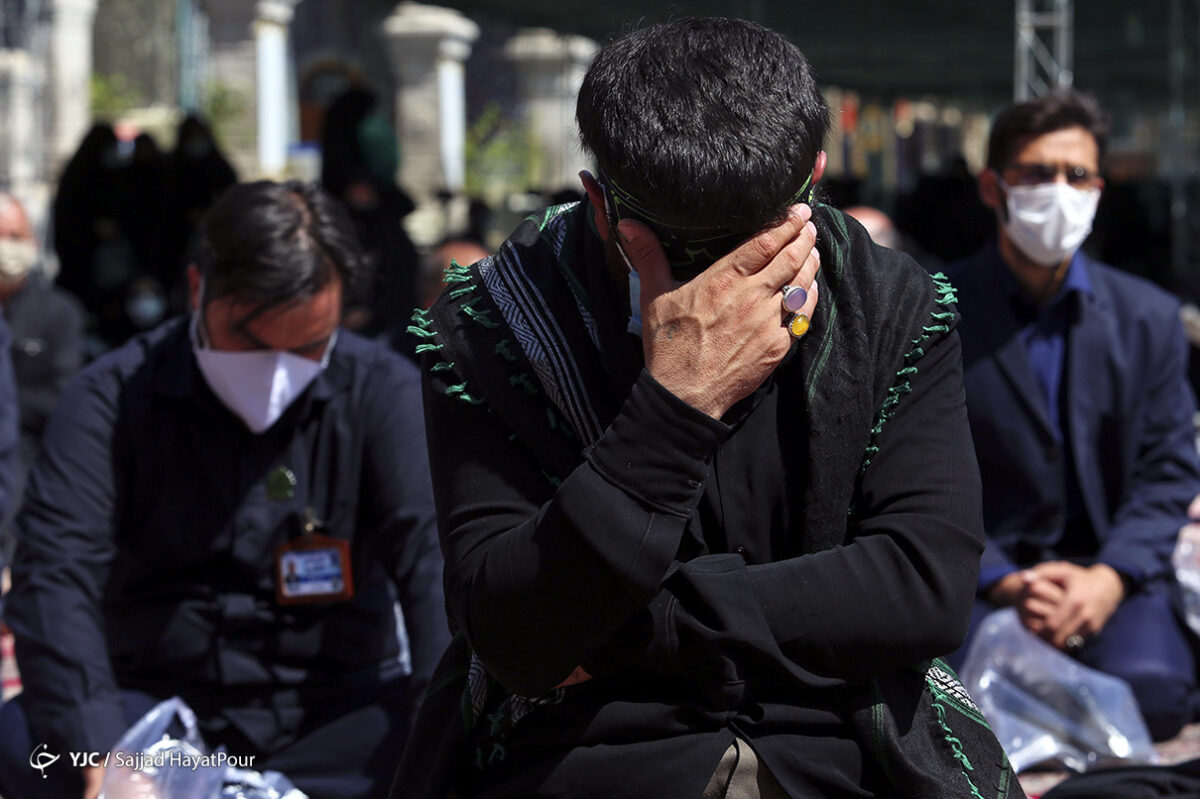The mourners annually take part in processions held in mosques and streets with different traditions to mark the martyrdom anniversary of Prophet Muhammad (PBUH)’s grandson Imam Hussein (PBUH) and his companions in Karbala.
This year, however, the restrictions imposed by the Iranian government to contain the spread of the novel Coronavirus have affected the annual gatherings.
The mourning rituals this year are only allowed to be held outdoors and on the condition that health protocols are observed.
The mourning ceremonies of Muharram reach their peak on the 9th day of the month, or Tasu’a, when Imam Hussein’s brother Abbas was martyred, and the 10th day, or Ashura, when Imam Hussein (PBUH) and his companions were martyred.
Around 680 AD, Imam Hussein (PBUH) along with his 72 followers was massacred in the battle of Karbala in Iraq by the forces of the tyrant ruler of the time, Yazid, the second Umayyad caliph.
Muharram ceremonies symbolize the eternal and unwavering stance of truth against falsehood and humanity’s struggle against tyranny, the cause for which Imam Hussein (PBUH) was martyred.
Shiite rituals and observances on Ashura consist primarily of public expressions of mourning and grief such as beating one’s chest as well as beating one’s back with light chains to remind the mourners of the pain and suffering of Imam Hussein (PBUH) and his followers on that day.
Iranian people across the country traditionally cook and distribute charity food among their neighbours, family and the poor, but this year the tradition has been influenced by COVID-19 pandemic.
Ta’zieh is also among the rituals held in Iran during the Muharram mourning ceremonies. Ta’zieh, as an Iranian national and religious dramatic performance, recounts religious and historical events through poetry, recitation, music, songs and motion.
The traditional play narrates the story of the martyrdom of Imam Hussein (PBUH) and his companions in Karbala with its own specific style and rituals.
This Persian Passion Play was registered on the UNESCO list during the fifth session of the UN body’s Intergovernmental Committee in Nairobi, Kenya, in November 2011.
The tragedy of Ashura leaves a permanent mark on the soul of any free and compassionate spirit, regardless of religion or race.
